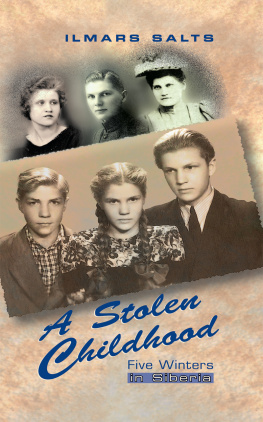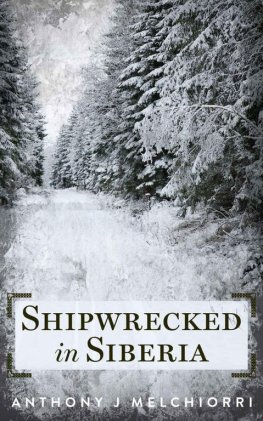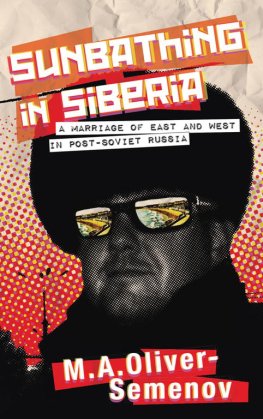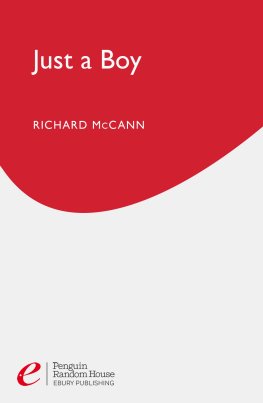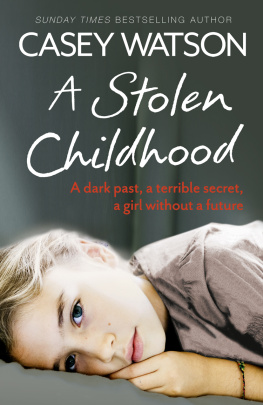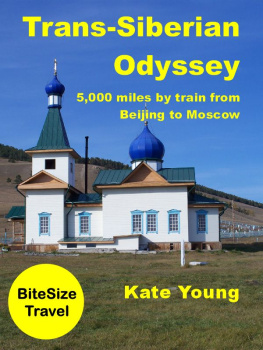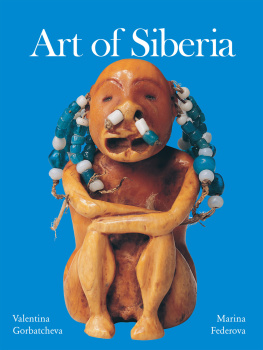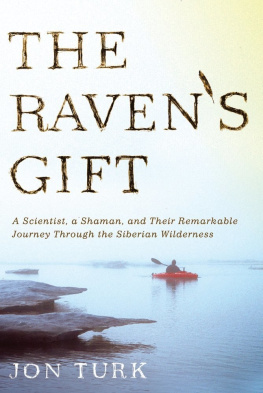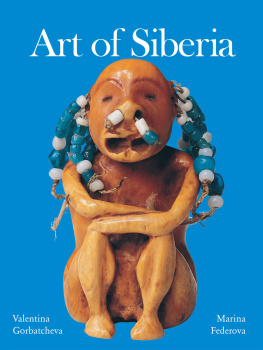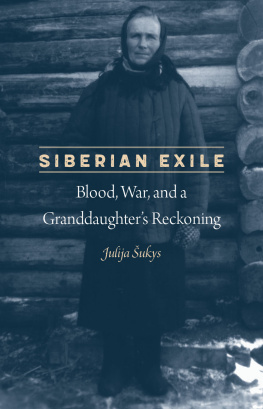ILMARS SALTS
A Stolen Childhood
To the memory of my parents
With love and deepest gratitude.
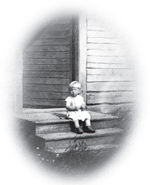
I L M A R S SALTS
A Stolen Childhood
Translated from Latvian by Gunna Dickson
Five Winters
In Siberia
FOREWORD
'Lest We Forget
The pages of A Stolen Childhood evoke graphic scenes and acts of grave injustice, cruelty and unconscionable inhumanity. The harsh Siberian winters the first, second, third, fourth ... pound our sensibilities like heavy blows from a pile driver. The brutal cold kills the deportees, one after the other. Then comes the most arduous part for the Salts children: the three siblings are orphaned and must fend for themselves. Incredibly, their youthful resilience enables them to withstand the extreme hardships and Ilmars, Visvaldis and Inta are able to return to their homeland.
The sea of sorrow is not just a metaphor. It was a reality. The Soviet terror drove thousands upon millions of innocents into that sea entire nations, Latvia among them. Death did not play favorites, although it did claim children and the elderly first perhaps to save them from unthinkable suffering. Those who forded the sea of sorrow could say it was Gods miracle. They have become living witnesses and the keepers of history, and willingly accept the obligation to pass along their legacy to future generations. There is nothing in this world worth having so much that it necessitates the denial of tragic events of the past. With no moral satisfaction, it is not even possible.
It isnt true that freedom was simply given back to us. It was paid for in advance with indescribable suffering and the most precious thing of all human lives. The cost of our freedom has been dear and demands a great deal from its beneficiaries those who are living it, and those who would forget.
Author Ilmars Salts family property Saltes (in Latvian, the word alts means shower or spray) is near the town of Bauska, not far from Latvias border with Lithuania. But, he says in his memoir, it came to represent so much more. During all those years in Siberia, Saltes was not just our ancestral home ... it was our goal, a beacon of light guiding our return. Even more than that, it was a symbol of freedom.
This book is dedicated, with deep gratitude, to the survivors who would not allow their memories to be extinguished. It is also a memorial to those who never came back.
The final resting place of so many of the victims will never be found. There is no cross or mound of earth to mark their sacrifice. Their names are engraved only in heaven and in the hearts of their fellow sufferers. Reliving the past in painful, but if these stories are not put to paper, they will disappear altogether. Only through books can we pass on this important message to our future generations in Latvia, and preserve it as a legacy for humanity.
Our countrys existence remains under threat. We should not be lulled into a false sense of security by offers of protection, or platitudes such as God will provide. God helps those who help themselves. He favors and protects those who remember, and remain vigilant.
Anda Lice
INTRODUCTION
Back in the 1960s, when my godmother Emma Caucis urged me to write about my childhood memories of Siberia, I couldnt do it. I wasnt ready.
I cant even explain what it was that prompted me to attempt it 30 years later. It may have had to do with the changes that came about in Latvia in the early 1990s and the books that were written at the time, some by my friends.
I realized then that I had to write about my own experiences, not only to honor the memory of my parents but for posterity. It was my story, mine alone and no one else could tell it.
In December of 1993, when I started to gather my thoughts and put them on paper in the hope they would someday be published as a book, I had no idea how unimaginably di~cult and demanding a task it would be.
I felt my lifes blood pouring into my efforts. Spurred by memories that had been seared into my psyche, I wrote and rewrote the words.
A stolen childhood aside, Siberia has frequently appeared in my dreams, inviting me back to its endless vastness. I cant forgive myself for not going there when it was still possible, just for a short while, to see Mizgirevka in the boreal forest, the turbulent waters of the Chulym River, and to visit the graves of my parents and my grandmother.
In the ledger of life and death, here is how our familys numbers balance out: six were taken away and three returned. Those three had six children and four grandchildren. May God grant them strength of character and clarity of mind.
The author
Like dried flowers, we were
scattered in the wind...
June 14, 1941 Early Morning
My brother and I were awakened earlier than usual and told to dress quickly and go downstairs.
Our family home Saltes was built by my great grandfather in the 19 th century as a single-story dwelling with five rooms and a large kitchen. My father added three rooms in the roof-space. The largest one, in the middle, had a window looking south. It was my grandmothers room and also had beds for my brother and me.
Groggy with sleep, we pulled on our clothes and made our way down the steep stairs, through the kitchen and into the dining room.
My father was sitting at the table along with several men. Another man, holding a Russian rifle with a bayonet, stood near the window.
The strangers were interrogating my father. They asked him, again and again, where he had hidden his pistol. Apparently their search of our house had yielded a tan leather gun case, which my father had neglected to turn in when the orders came down to surrender all weapons and ammunition.
That morning, our house, along with many others in the rural municipality of Panemune in the Bauska district in southern Latvia, was visited by heavy trucks carrying armed men.
They were acting on Order No. 004067 dated June 13, 1941, and signed by Sorokin of the security service to carry out the search and arrest of Aleksandrs Salts and his property.
Our family was on a list of names of people to be taken into custody and transported to Meitene railway station.
- My father, Aleksandrs Janis, born June 2, 1900. - My mother, Olga, nee Rankis, born July 26, 1903.
- My grandmother, Emma, nee Grube, born November 4, 1875.
- Myself, Ilmars Aleksandrs, born March 20, 1931.
- My brother, Visvaldis, born February 25, 1934. - My sister, Mirdza Inta, born November 22, 1938.
I watched as the intruders emptied the contents of our large wood-and-glass cabinet, which held a collection of silver and tableware that had been accumulated over several generations, including monogrammed childrens christening spoons.
The men pulled out drawers and opened boxes, tossing our family heirlooms into a pillowcase that, when full, must have weighed at least 10 kilos. Then, inexplicably, they turned it over for safekeeping to our neighbors, who had been brought over as witnesses to the arrest.
Our maid Kate, a beautiful Polish woman, was helping my mother pack. As it turned out, Kate would remain in our house for most of her life and raise her own family there. We learned later that she had asked to come along with us, but her request was denied.
My little sister was crying and my mother tried to comfort her while gathering up various articles of clothing, linens and food to take with us. Flustered by the mens orders to hurry up, she grabbed first one item, dropped it, then took up another and stuffed them into bags.
My 66-year-old grandmother my fathers mother had tied up her own belongings in a large bundle and insisted she did not need help carrying them to the truck. She was wearing an ordinary housedress, a lightweight black coat, and a scarf tied round her head.
Next page
